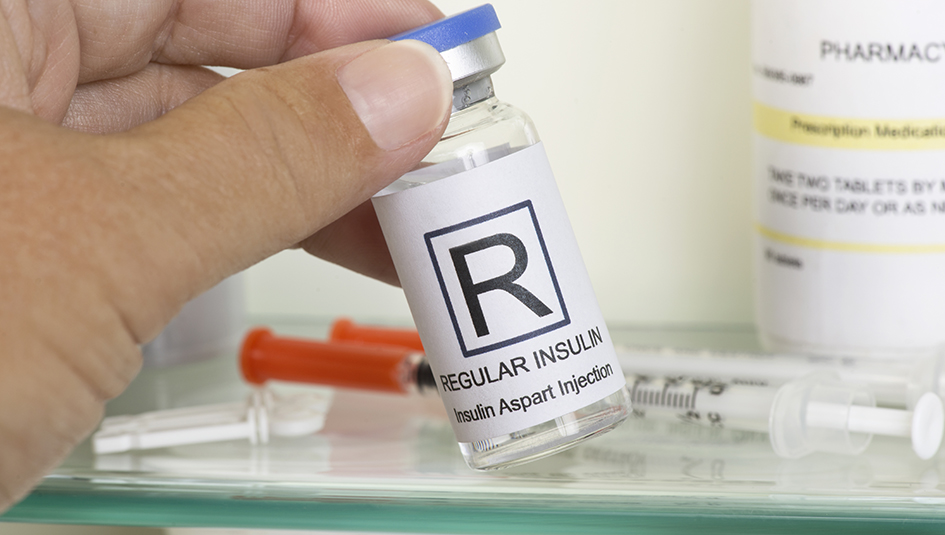Why Exenatide Does Not Benefit All People Equally
Understand why this GLP-1 drug and other incretins help people with type 2 but have little benefit for those with type 1

Exenatide is a somewhat common injectable medication used to treat type 2 diabetes, especially in people who have not responded well to treatment with metformin or sulfonylureas alone.
Given the mode of action of this drug, it would seem that exenatide might be useful as an additional treatment for type 1 diabetes, as well.
But a recent study published in The Lancet Diabetes & Endocrinology found the effects were far less substantial than those found in the many type 2 studies that preceded it.
In this article, we will look at how exenatide works and why it is more effective in treating one type of diabetes over the other.
What is Exenatide?
Exenatide is a synthetic hormone that mimics natural human-glucagon-like peptide-1 (GLP-1). GLP-1 and other incretins help the body regulate glucose levels by increasing the secretion of insulin into the blood, slowing the digestion of food, and reducing glucagon release from the liver.
A GLP-1 can help regulate and reduce appetite.
Exenatide is typically taken as a twice-daily injection (once with breakfast and once with dinner) but is also available in a once-weekly form.
How Does Exenatide Help Control Blood Sugar?
People with Type 2 Diabetes
By slowing glucose release after a meal and stimulating insulin secretion, exenatide helps people with type 2 maintain low blood sugars after eating. The appetite reducing effects of the drug has also been shown to help patients lose weight.
A 2004 triple-blind, placebo-controlled study published in Diabetes Care, found that when exenatide was given to type 2 diabetics with an HbA1c above 7, 41% of them achieved an HbA1c of below 7 after 30 weeks, while only 9% of control patients saw the same drop.
This study also found that exenatide subjects lost on average of 1.6kg during the course of the 30 weeks.
A follow-up study on these same subjects after 3 years on the drug found that the HbA1c reduction was sustained and biomarkers for hepatic and cardiovascular function had improved since baseline.
Exenatide has shown the same impressive results when used in obese type 2 patients who are also using insulin. Not only did the patients in one study lose weight and see an improvement in their HbA1c, but their overall insulin dosage dropped as well.
People with Type 1 Diabetes
The safe and effective use of exenatide in insulin-treated type 2 patients naturally leads to the question of what this drug might be capable of when used to treat insulin-dependent type 1 diabetes.
The recently published double-blind, placebo-controlled study was the first of its kind to test exenatide on a large subject group of type 1 diabetics.
- Exenatide use led to reduced insulin mealtime insulin dosages and weight loss in many of the subjects, the effect on HbA1c was much less remarkable.
- The drug appeared to lower glycemic excursions after 4 weeks, but this effect lessened over time and no substantial difference was seen after the 26-week study period.
- While the study group saw a 3% reduction in HbA1c by the end of the study, a similar 2% reduction was seen in the control group and the difference between the two was found to be statistically insignificant.
While the delayed-stomach-emptying effects of the drug were clearly seen in the reduced bolus insulin doses of the subjects, the other modes of exenatide glucose regulation were clearly less effective in type 1 patients compared to type 2.
This makes sense when you consider that most of the type 1 subjects were older adults who were likely making little to no insulin of their own. This factor would completely negate the insulin-secretion activating feature of exenatide.
Possible Type 1 Exenatide Application
These less than impressive results combined with a high occurrence of gastrointestinal upset associated with the drug, make it unlikely that exenatide will become a feature of the type 1 diabetes treatment platform anytime soon.
However, there may still be some use for the drug within the type 1 community.
Exenatide’s ability to reduce appetite, help subjects lose weight without increasing hypoglycemic episodes, and reduce mealtime insulin needs may provide enough benefit to be prescribed in some cases to type 1 people struggling with obesity and insulin resistance.
More studies looking into this very specific use of the drug will be needed before exenatide is approved for use in type 1 diabetics.







